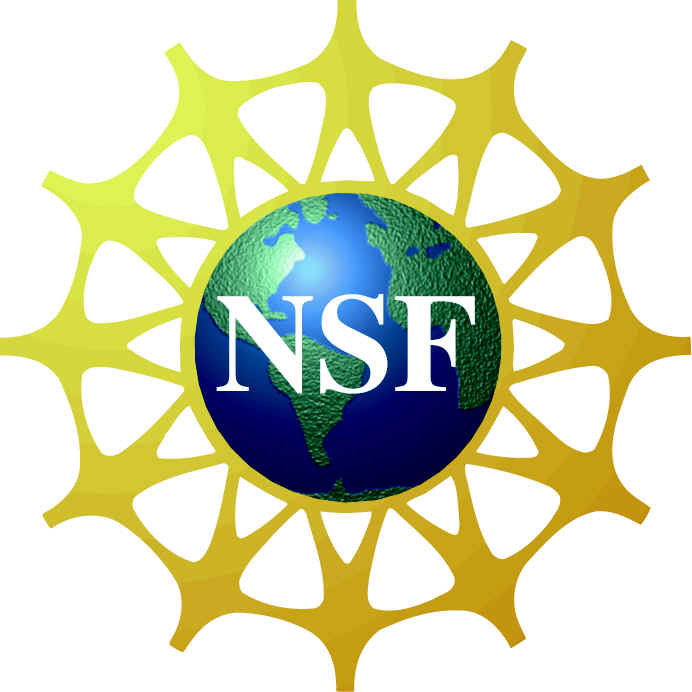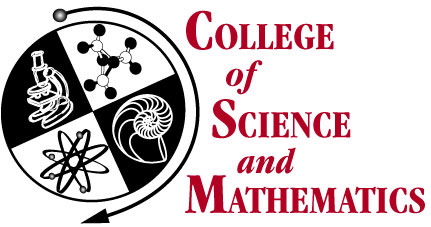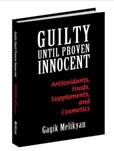 |
 |
 |
Page Description
The following page is a two column layout with a header that contains a quicklinks jump menu and the search CSUN function. Page sections are identified with headers. The footer contains update, contact and emergency information.
|
SERVICE TO THE GENERAL PUBLIC PROVIDED BY PROFESSOR MELIKYAN |
FROM THE EDITOR
My
intention is to provide the general public with reliable and truthful
information on antioxidants, foods, beverages, supplements, cosmetics,
and natural products. The volume
of information that becomes available every day is such that even the
professionals working in the respective fields are having difficulty
keeping up with it. For a lay person, it is impossible to read the
original sources, to evaluate them, and to understand
their scientific value. These "informational pieces" will help the
general public to make educated choices, at the time when the federal
and state agencies do not adequately protect them from potentially
hazardous compounds.
![]() Good news
Good news
The word about
Guilty spreads out and I was recently interviewed by CBS (Channel 9 News). Please see the url below. I hope you'll like it.
http://losangeles.cbslocal.com/2011/03/03/gagik-melikyan-talks-food-and-product-safety/.
 This
book is the only one on the market that tells the truth about
antioxidants, green tea, red wine, coffee, hair color, food supplements,
sunscreen lotions, natural compounds, and parabens, which are widely
used in cosmetic formulations.
This
book is the only one on the market that tells the truth about
antioxidants, green tea, red wine, coffee, hair color, food supplements,
sunscreen lotions, natural compounds, and parabens, which are widely
used in cosmetic formulations.
The book is written for the general public, and also for professionals
from academia, food industry, government agencies, public and university
libraries, business world, consumer protection and advocacy groups.
The book is available through Amazon, $29.99 (incl. tax & S & H), and also from Matador bookstore, CSUN campus.
![]() You can help
You can help
Public
presentations are critically important for disseminating this knowledge
about foods, supplements, antioxidants, and natural compounds that our
bodies are exposed to.
During the last three months, I have made seven presentations for
students, faculty, doctors, dieticians, pharmacists, engineers,
businessmen, and also the public at large. Extensive Q&A sessions
and book signing usually concluded the events.
You can assist the general public by helping me to organize more
presentations at different venues, such as churches, synagogues,
professional and health-related organizations, interest groups, business
forums, and public gatherings of an educational nature.
If you have any ideas or suggestions, please give me a call
(818-677-2565) or just drop me a line (gagik.melikyan@csun.edu).
![]() More proof that we should be careful with supplements - even of natural origin
More proof that we should be careful with supplements - even of natural origin
After decades of administering
folic acid to pregnant women, a paper published by Canadian authors (Cancer Research, Feb 2011)
raises new doubts as to how safe the compound is. The fact is that
folic acid is given to women to prevent neural tube birth defects, and
for long,
it was considered intrinsically safe because it is present in the human
body (liver, kidney). Since 1998, food manufacturers are even asked
to add folic acid to white flour, pasta, and cornmeal products.
The new experimental data indicate that rats who ate a folic acid supplemented diet had a
two-fold increase in rates of mammary tumors The same hike
in incidence was reported for rats whose mothers were given folic acid
during pregnancy. The concerns about folic acid are not new. Some
studies have already pointed out that folic acid causes
an increase in brain tumors, while decreasing other types of cancers
(colon, leukemia).
I will wait to see if these new data will be duplicated, or otherwise
confirmed, by other researchers. It is also important to better
understand what the differences are in folic acid metabolism in humans
and rats. Meanwhile, the medical community will, most
probably, react to this publication by showing more restraint in
administering folic acid to women. My approach is that
unless it is established, by the analysis, that the person has a
folic acid deficiency, he/she should not take folic acid supplements,
or, as a matter of fact, any other supplements.By the same logic, it is not a good idea to routinely fortify food with folic acid, actually
putting the unsuspecting public on folic acid supplementation.
![]() Bad news: no labeling required for Neotame, an artificial sweetener
Bad news: no labeling required for Neotame, an artificial sweetener
You
might think that the FDA and other federal and state agencies in charge
require manufacturers to properly label their products. In fact, I
consider it to be one of our basic
rights, as citizens of the free country, to know what our bodies are
exposed to, willingly or unwillingly. Well, not so fast!
Neotame is an artificial sweetener made by Nutrasweet that is several
thousand times sweeter than sucrose (table sugar). So, it is economical
to use such a compound because lesser quantities are needed to attain
the same "sweetening" effect in foodstuff. So,
the idea is good, it makes sense from the economic point of view, and
it might also be based on sound science.
The only problem is that we, as consumers, would like to know what the
structure of this artifical sweetener is, and, most importantly, in
which products it has been, or will be, used. Chemically, Neotame is an
alkylated version of
aspartame, a dipeptide that has been around for quite some time,
and has long been a subject of controversy. At the time, due to
relentless efforts of consumer advocacy and protection groups, the
labeling for aspartame has been introduced by the FDA.
It would have been logical to also make labeling for Neotame mandatory.
But guess what? It is not a requirement! Even more, it has been allowed
for use, without labeling, even in USDA Certified Organic food items!
Another dimension of the same problem is that the manufacturers of
cattle feed can use the same sweetener as an economical substitute for
molasses. It's called
Sweetos, and it can mask unpleasant tastes of animal food. (Why on Earth would someone feed animals with food whose taste needs to be masked with artificial sweetener?) So, next time you are ordering a steak, it might have a certain amount of
Neotame in it. The scientists claim that the compound is structurally modified in such a way that it does not produce
phenylalanine, so it should be safe for those who suffer from phenylketonuria (an inability to convert phenylalanine into tyrosine, causing the accumulation of the former in the human body).
So what is the solution? If the FDA does not inform us what exactly we
are exposed to, then I expect more people to stop using processed food,
including organic ones, and try using the services of local farmers whom
they trust. Well, it will be quite a change
in our lifestyle. Why don't we just put more pressure on the FDA and
ask them to do their job? It is quite possible that Neotame is
relatively safe, but
we would like to know if that particular steak, or any other food item, contains an artificial sweetener!
If we then decide to consume it, then it is our informed
decision, and we can't blame any third parties for its consequences, if
there are any.
![]() Dukan diet coming to the United States
Dukan diet coming to the United States
The
Dukan diet has been popular in France for years. It was created by Dr.
Pierre Dukan and consists of high-protein and low-fat meals. Dukan's
book has already been translated
into 14 languages! Some professionals consider it to be just another
hype that will come and go. The main concerns are as follows: (1) it is
not new; it is just a modified version of the Atkins diet; (2) it is too
restrictive on fruits; and (3) there is no
sound science to back it up. Its proliferation, impressive sales, and
attendant with it, the societal consequences have forced the dieticians
in Europe to take a stand. And their is apparently not so much
excitement among professionals working in the field.
The British Dietetic Association called it one of the five worst diets
of 2011! The French National Agency for Food, Environmental and
Work Health Safety considers the Dukan diet to be one of 15 imbalanced
and potentially risky diets.
Over the years, I have seen many "new" diets, initially making some
waves, then disappearing to make space for the next "discovery." The
problem is that all these attempts to come up with a new diet are just
variations - a little bit more, a little bit less
- of the same. What is needed isn't an incremental development, but a
quantum leap forward, when the diet is designed based on truly new
approaches and principles. There are some ideas how it can be done so
that the human society can switch to the new paradigm
of food consumption. The consequences can be highly beneficial to the
human society with the life expectancy increasing by a substantial
margin. The only limiting factor is money - as always.
About this email message
This is an informational piece, which I am sending to
my students, colleagues, community members and other interested parties
to inform them of the latest developments pertaining to consumer
products.
I expect to send these messages on a regular basis.
Besides the scientific updates, you will also learn about my upcoming
public presentations and book signing events.
If your friends and family are interested in receiving these messages, please send an email request to
gagik.melikyan@csun.edu. If you prefer to be removed from this email list,
please respond to this message with the word “unsubscribe” in the
subject line.
No part may be reproduced or utilized in any form or
by any means, electronic or mechanical, or by any information, storage
or retrieval system, without a written permission from the author. Suggestions and feedback are welcome at gagik.melikyan@csun.edu.